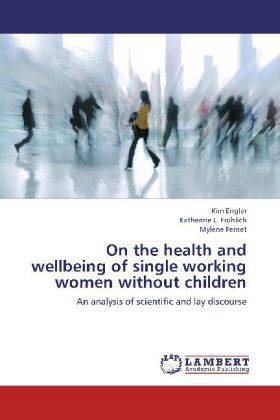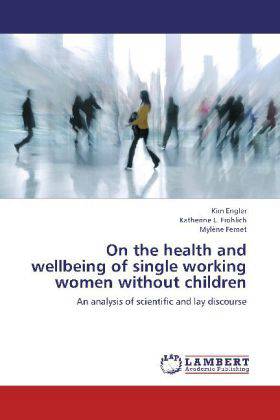
Bedankt voor het vertrouwen het afgelopen jaar! Om jou te bedanken bieden we GRATIS verzending (in België) aan op alles gedurende de hele maand januari.
- Afhalen na 1 uur in een winkel met voorraad
- In januari gratis thuislevering in België
- Ruim aanbod met 7 miljoen producten
Bedankt voor het vertrouwen het afgelopen jaar! Om jou te bedanken bieden we GRATIS verzending (in België) aan op alles gedurende de hele maand januari.
- Afhalen na 1 uur in een winkel met voorraad
- In januari gratis thuislevering in België
- Ruim aanbod met 7 miljoen producten
Zoeken
On the health and wellbeing of single working women without children
An analysis of scientific and lay discourse
Kim Engler, Katherine L. Frohlich, Mylène Fernet
Paperback | Engels
€ 101,45
+ 202 punten
Omschrijving
Single working women without children (SWWWC) are a notable demographic group yet their health/wellbeing is little visible in research. Work is growing on the stigma of singlehood in couples-oriented cultures with claims that it may be perpetuated through research practices. This book examines interpretations of the health/wellbeing of SWWWC in research and qualitative interviews with SWWWC and argues for more reflexivity towards coupled/family status in health research. How the health/wellbeing of SWWWC is explained in scientific research is analyzed, finding frequent reference to parental or partner roles which can obscure or cast their lives as relatively impoverished and reinforce single woman stereotypes. How SWWWC construct their own wellbeing is then analyzed, finding notions of balance between life spheres and an identity as dynamic as central which challenges understandings of singles/the childless as having lives lacking in breadth or fulfillment. The scientific and lay materials are then brought together over the topics of singleness and paid work in relation to health/wellbeing. This book is useful for health or singles studies researchers and to single/childless women.
Specificaties
Betrokkenen
- Auteur(s):
- Uitgeverij:
Inhoud
- Aantal bladzijden:
- 292
- Taal:
- Engels
Eigenschappen
- Productcode (EAN):
- 9783659297472
- Verschijningsdatum:
- 26/11/2012
- Uitvoering:
- Paperback
- Afmetingen:
- 150 mm x 220 mm
- Gewicht:
- 431 g

Alleen bij Standaard Boekhandel
+ 202 punten op je klantenkaart van Standaard Boekhandel
Beoordelingen
We publiceren alleen reviews die voldoen aan de voorwaarden voor reviews. Bekijk onze voorwaarden voor reviews.









